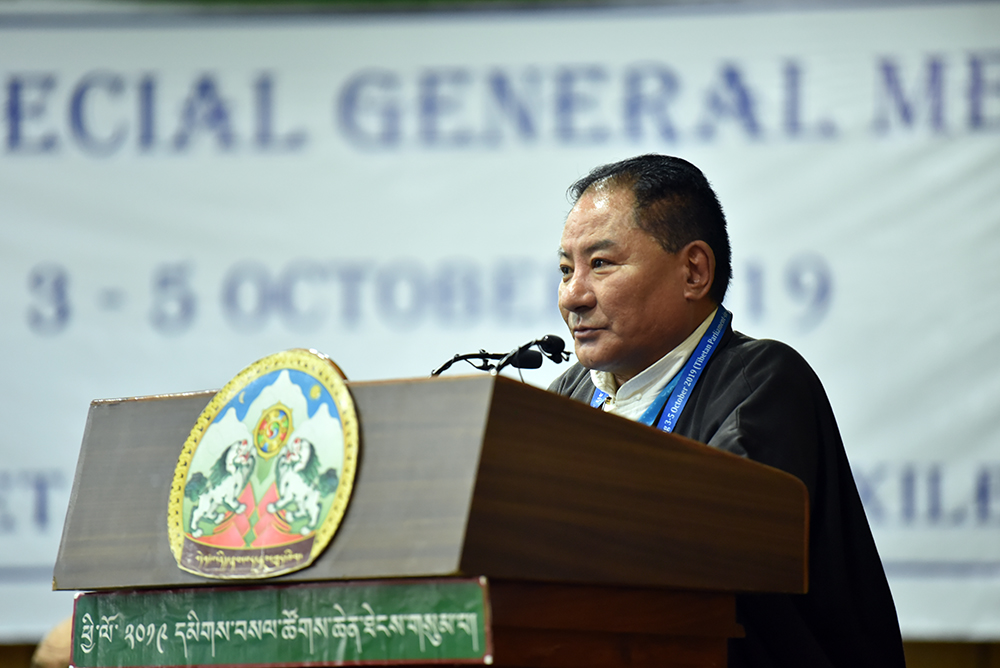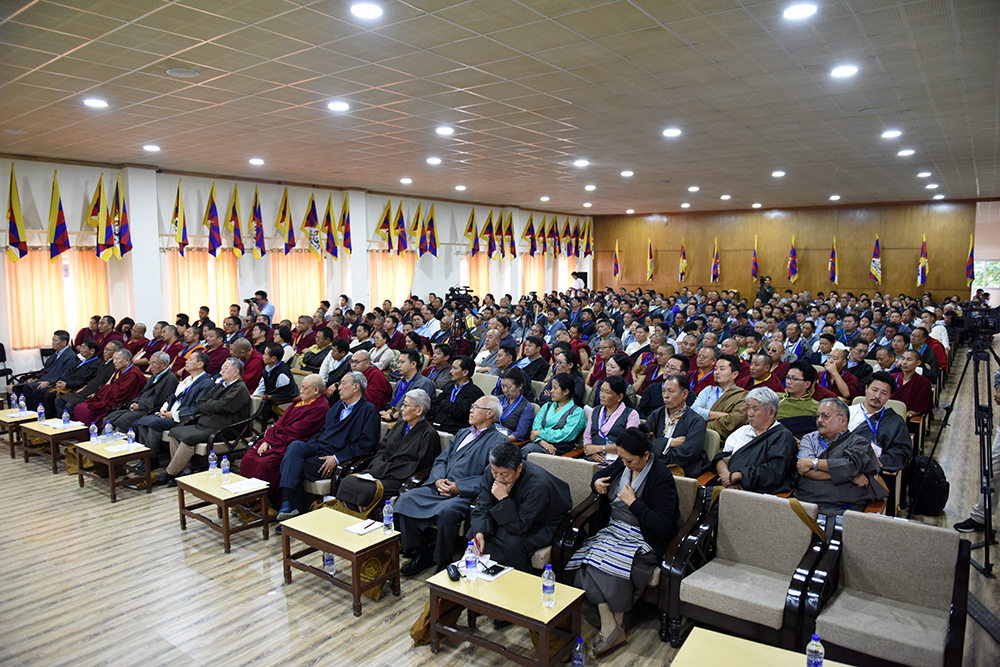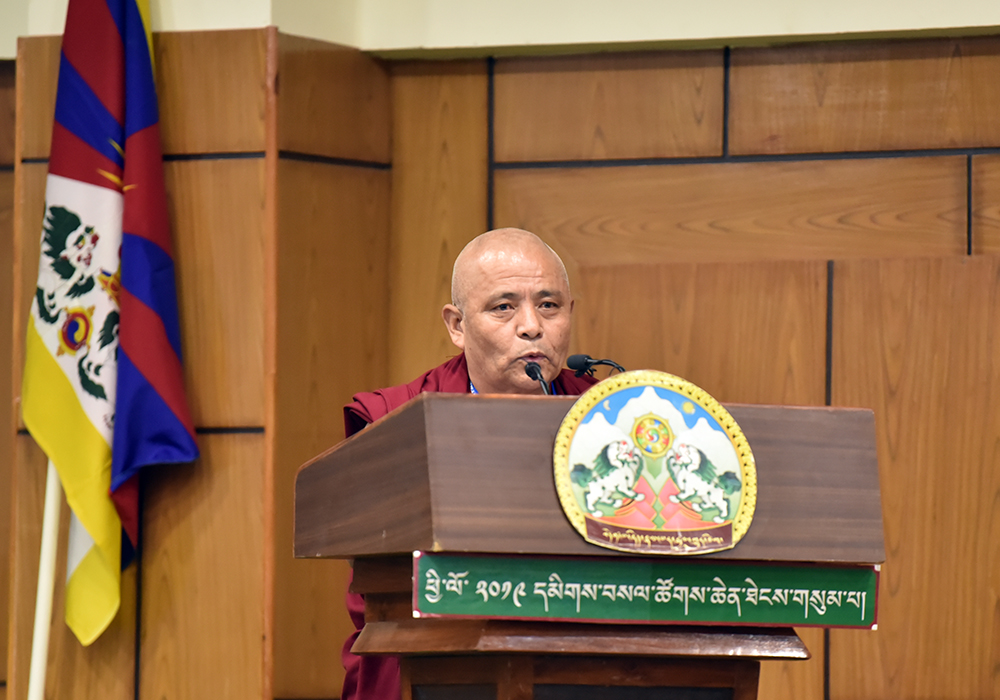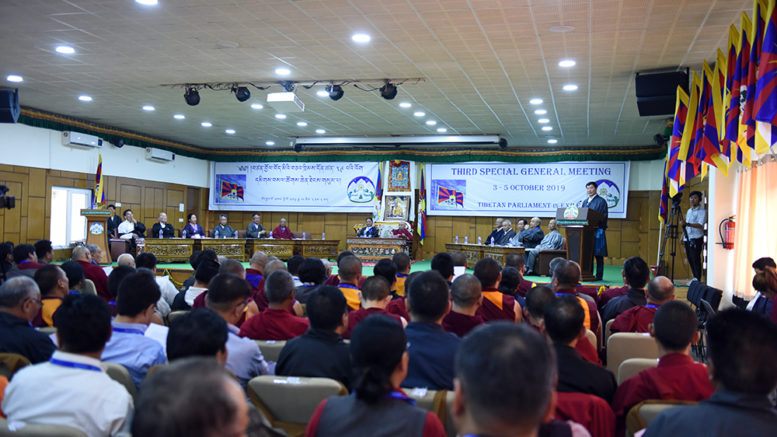In 1969, His Holiness the Dalai Lama said that whether or not the institution of Dalai Lama should continue should be decided by the Tibetan people.
50 years later, on 5 October 2019, 340 Tibetan representatives of the three pillars of Tibetan democracy: The Kashag; Tibetan Parliament-in-Exile and Tibetan Supreme Justice Commission, the five major schools of Tibetan Buddhism and the Tibetan diaspora spread across 24 countries, unanimously passed 4 resolutions, declaring the six million Tibetan’s earnest prayers for the 14th Dalai Lama to reincarnate as per the Tibetan Buddhist tradition and rejecting outrightly China’s preposterous interference in the sacred institution of Tibetan reincarnation.
Sending a clear message of deterrence to the Chinese government, the Kashag and the Tibetan Parliament-in-Exile that jointly convened the Special meeting of Tibetan representatives announced that the two-page resolution will be adopted effectively as the official policy of the Central Tibetan Administration on the reincarnation of His Holiness the Dalai Lama and therefore, shall remain recorded in the historical annals of Tibet.
The first resolution re-affirmed the inseparable relationship between the lineage of His Holiness the Dalai Lama and the Tibetan people; the utmost trust and devotion the Tibetans hold for His Holiness as the ultimate spiritual guide for this life and the nexts and expressed fervent prayers for his long and healthy life.
The second resolution said the Tibetans inside Tibet and those in exile collectively and fervently appeal for the institution of the Dalai Lama to continue for the benefit of all spiritual beings of Tibet and accordingly for His Holiness the 14th Dalai Lama to reincarnate as per the Tibetan Buddhist tradition.
The third resolution affirmed upon the supreme authority of His Holiness the 14th Dalai Lama on his reincarnation and Tibetan Buddhism in general.
It read, “no nation, government, entity or any individual can claim to recognise the reincarnation of His Holiness the Dalai Lama. The final authority on decisions regarding the reincarnation of His Holiness the Dalai Lama rests indisputably and completely with His Holiness the Dalai Lama himself and the concerned authorities of the Gaden Phodrang Trust.”
Finally, the fourth resolution categorically rejected any interference of the Chinese government in the selection process of Tibetan reincarnate lamas as unacceptable. In addition, it outrightly rejected the Order no. 5 issued by the Chinese government which states that reincarnation of tulkus and lamas must be approved by the Chinese government for legal validation.
The four resolutions were unanimously passed by the representatives of the Tibetan people at the three-day Special meeting.
The Special meeting at the Tibetan headquarters concluded with an overwhelming show of unity and shared commitment to safeguarding the sacred, karmic relationship between the lineage of the Dalai Lamas and the Tibetan people-a key agenda of the meeting.
Both the Tibetan Buddhist representatives and community leaders re-affirmed their unsurmountable devotion towards His Holiness the Dalai Lama, describing him as “heart and soul of the Tibetan people” and the only singular leader with whom the Tibetan people share a special, historical and karmic relationship.
The meeting also unanimously asserted in His Holiness the Dalai Lama’s 2011 statement that if a decision to continue the institution of the Dalai Lama is made, that the responsibility shall primarily rest with the Dalai Lama’s Gaden Phodrang Trust, who will be informed by the written instructions of the 14th Dalai Lama.
“Apart from the reincarnation recognized through such legitimate methods, no recognition or acceptance should be given to a candidate chosen for political ends by anyone, including those in the People’s Republic of China,” read the 2011 edict on His Holiness’ reincarnation.
By the admission of His Holiness himself, one thing is certain that His Holiness the 14th Dalai Lama would reincarnate only in a free country and certainly not on Chinese occupied soil.

Speaker Pema Jungney, Tibetan Parliament-in-Exile addressing the closing ceremony of the ‘3rd Special General Meeting’ of Tibetans organised by the Kashag and Tibetan Parliament-in-Exile at the CTA headquarters, Dharamshala, 5 October 2019.

Over 345 Tibetan authorities representing the three pillars of Tibetan democracy: The Kashag; Tibetan Parliament-in-Exile and Tibetan Supreme Justice Commission, the five major schools of Tibetan Buddhism, former leaders and the Tibetan diaspora spread across 24 countries attend the ‘3rd Special General Meeting’ of Tibetans organised by the Kashag and Tibetan Parliament-in-Exile at the CTA headquarters, Dharamshala, 5 October 2019.

Deputy Speaker Acharya Yeshi Phuntsok, Tibetan Parliament-in-Exile delivers the vote of thanks upon the successful outcomes of the ‘3rd Special General Meeting’ of Tibetans organised by the Kashag and Tibetan Parliament-in-Exile at the CTA headquarters, Dharamshala, 5 October 2019.

